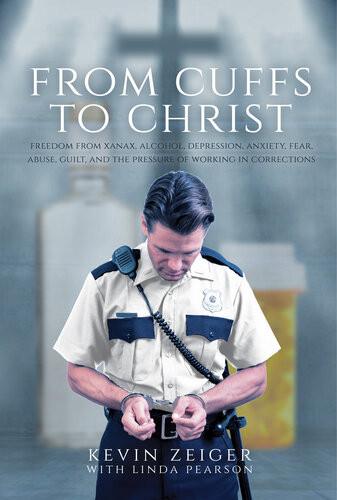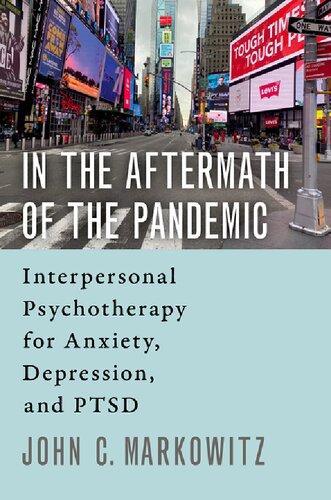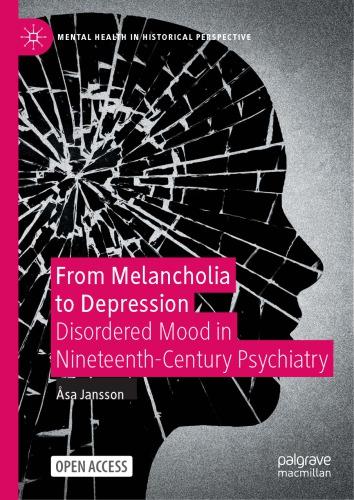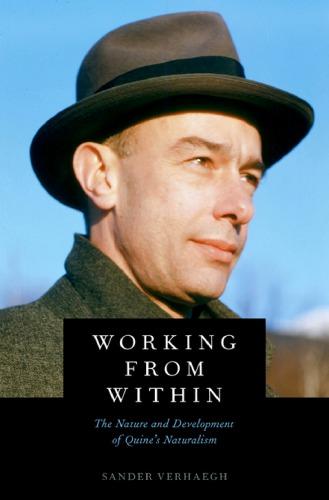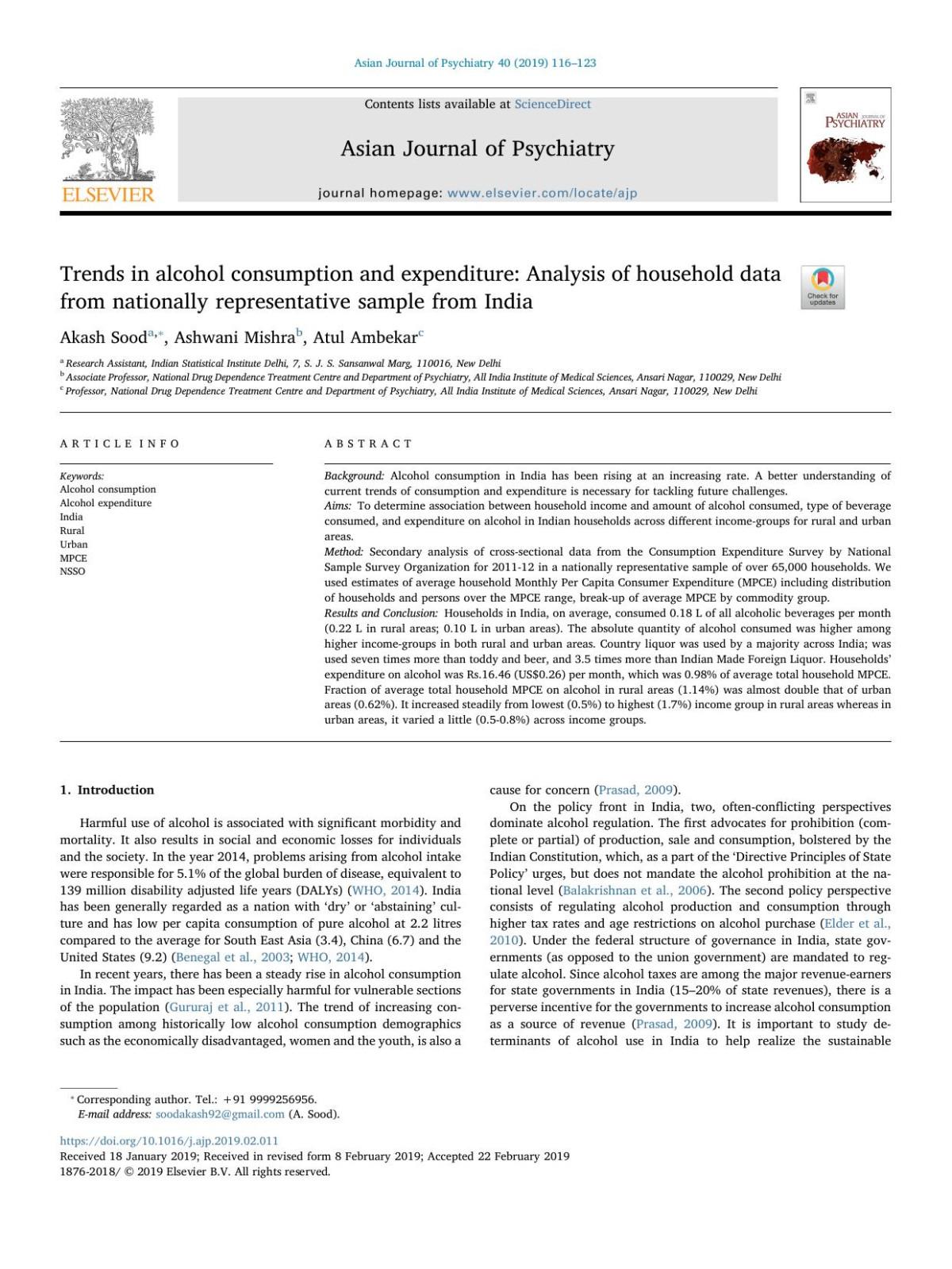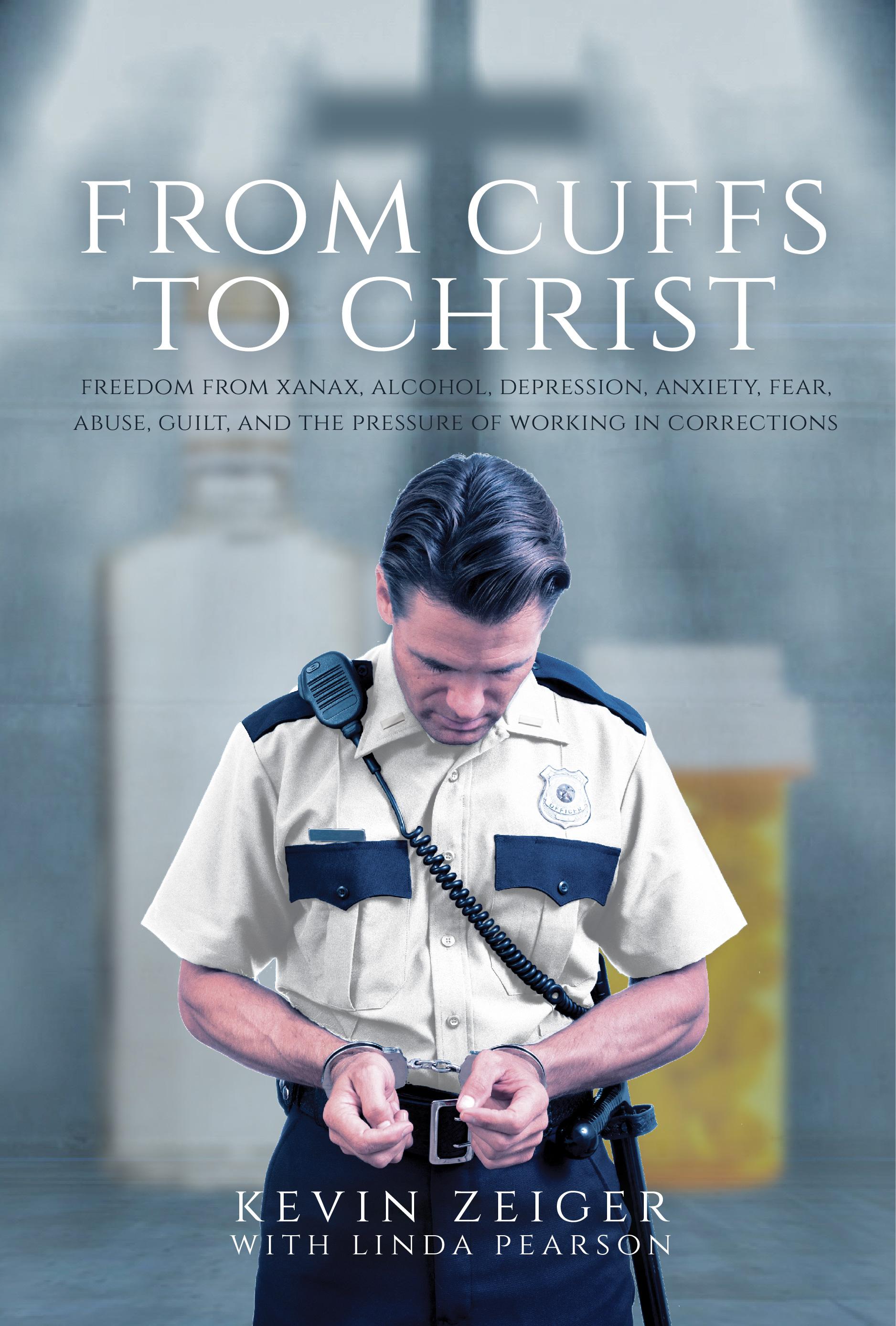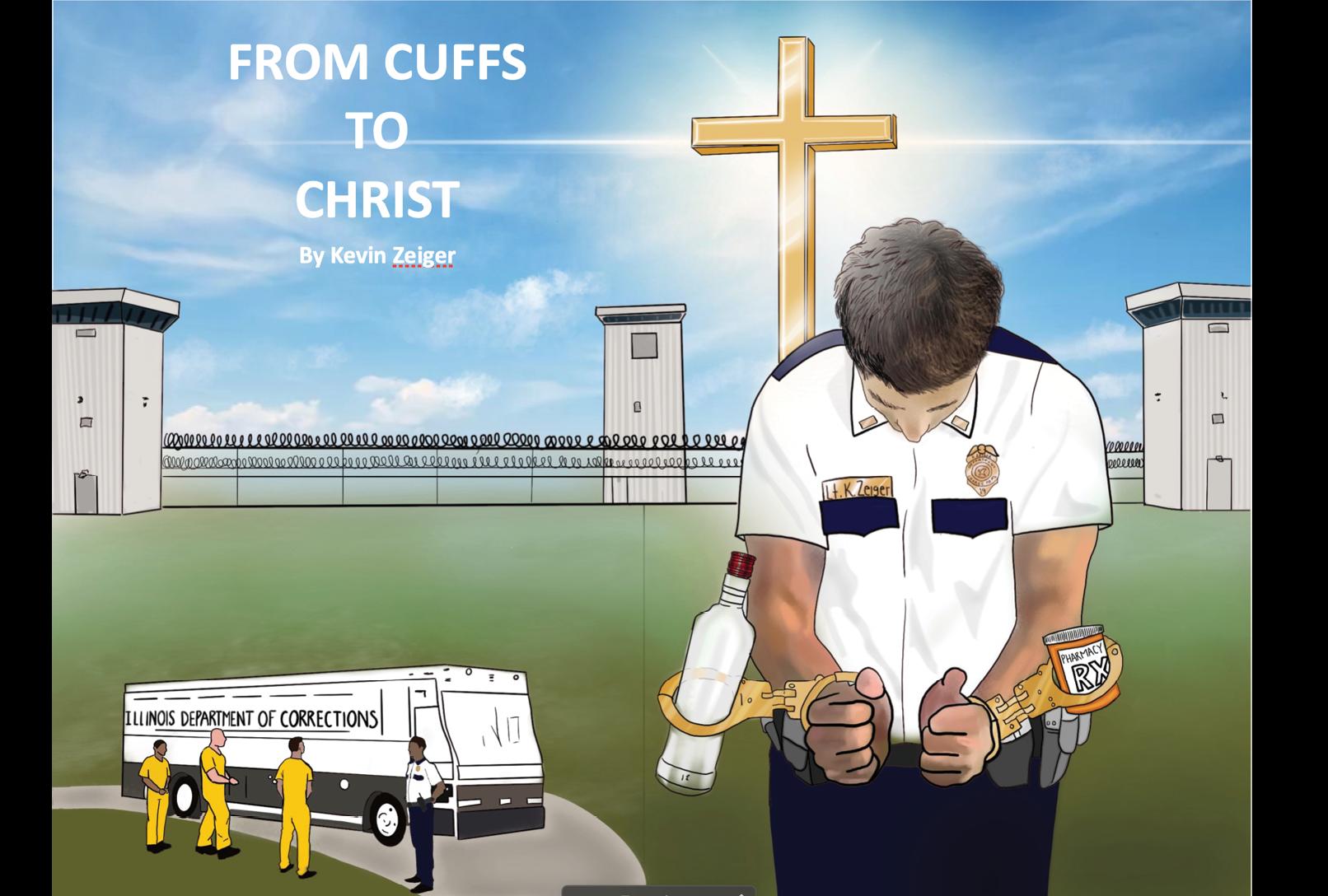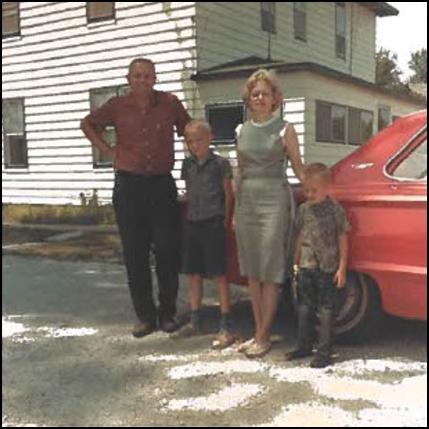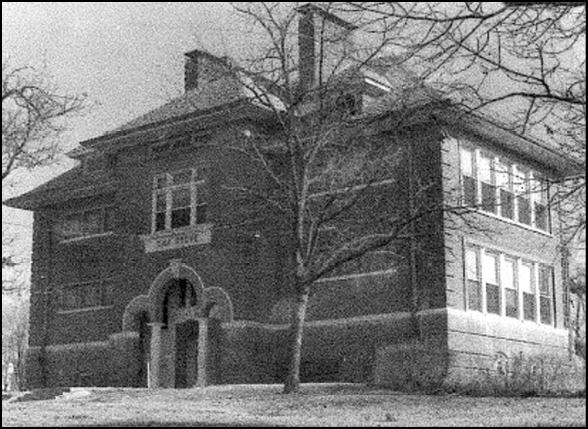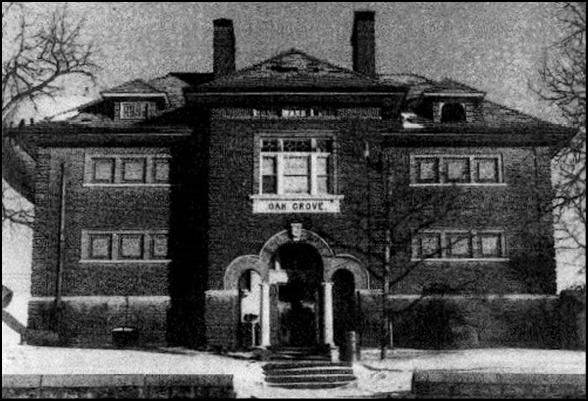IN THE BEGINNING...
Anxiety, depression, and addiction have darkened my life. Some of the darkness was brought on by circumstances, some resulted from my own choices, and at times, I suffered at the hands of others. However, I will not cast blame on others for my trauma. If I held my problems against anyone, it would eat me alive. Instead, I want to share my story with the hope that I can help someone else. I want others to realize that no matter how low they sink, there is hope. There is redemption. There is deliverance. I am proof of this.
I was born into a good family. However, even “good” families can struggle at times.
I can remember back a long way, as far back as age three or four, when things were good. I had three older brothers. I was at home alone with my mother through the day, and then when my brothers came home, I got all kinds of attention. It was a good life filled with wonderful memories of taking family vacations, playing in a sandpile in the backyard, and spending time with my loving grandparents. We had some really good times. When I was a child, one of my favorite possessions was a record player, along with a collection of records that I kept in meticulous order and played over and over. I also had a pedal car that I rode up and down the sidewalk on hot summer days, and I used to wash it regularly to keep it shiny and clean. These innocent childhood days were happy, safe times. No one could have ever imagined the pain and darkness ahead of me.
My dad’s parents grew up in Adams County, Illinois, not far from where I live now. My grandpa, Bryan Zeiger, was born in 1900 in a large, two-story farmhouse, along with his six siblings. That generation usually did not go to a hospital for their children’s births, so all their children were born on the farm with someone, perhaps an aunt, serving as the midwife. He married
my grandmother, Ethel, and they began their married life in that same farmhouse, living with my great-grandparents. My dad, Robert, and four more children were born there as well. When Dad and his siblings were still small, a neighbor offered my grandpa a job on his farm, and he even had an empty house for them to move into. That had to be an appealing offer; their family could have a little space and privacy. However, when my greatgrandpa heard of this offer, he pulled out the Sears and Roebuck catalog and told Grandma Ethel she could pick out any of the model homes in the catalog, and he would have it built on the farm for their family. Greatgrandpa was rather wealthy and generous enough that Grandma could have picked out a four-bedroom design, but she was more conservative and chose a small, two-bedroom plan for their family of seven. Grandpa and Grandma were appreciative of having their own place. Decades later, my wife, Virginia, and I lived in that very same house for four-and-a-half years with our own small children. Even as adults, Dad and his siblings did not wander far from the homestead, choosing instead to live in the general area.
This close, happy family suffered a terrible tragedy when Dad was eighteen years old. On November 13, 1942, his sister, Norma Jean, the youngest in the family, died at age eleven from an accident on the school ground. An inquest says that the children were playing a game of “Andy Over” (also known as “Ante Over,” “Annie Annie Over,” and various other titles) when Norma Jean and a boy collided, and Norma Jean received a head injury. Her parents drove her to Golden to see a doctor, who, finding no apparent serious injuries, told the parents to take her home and put her to bed. After Norma Jean reached home, she grew worse and died before medical aid could come. The official inquest determined the cause of death was a concussion of the brain, accidentally sustained.
My dad and his sister, my aunt Ruth, filled in more of the story for me over the years. After Norma Jean was injured, she was hurting so badly that she just sat while the other children continued playing. A school board member happened to stop in at the school, and the teacher shared how
concerned she was about Norma Jean. The board member agreed that Norma Jean needed to go home, so he drove her there. When my grandparents saw how sick she was, they immediately took their little girl to the doctor. He looked her over, checking her vitals and looking at her eyes, and he assured my grandparents she would be all right. He told them to give her plenty of rest and to not let her play for a while. However, by the time they got her back home, she couldn’t walk. My grandpa had to carry her from the car to the bedroom. Norma Jean, crying hysterically, told her parents, “I’m going to die!” Dad, who was a senior in high school at the time, came home from school to see how dire the situation was. When pink fluid began to flow from her nose, both my grandpa and my dad knew that Norma Jean would not survive; they had witnessed the butchering of hogs, and this pink fluid from the nose meant death was imminent. Norma Jean died in her mother’s arms, and my grandma went into a state of hysteria; her baby girl was gone. The funeral was held in the home, with Grandma dressing her and fixing her hair.
This event deeply affected all the family. For one thing, it happened on threshing day, which was a big day for farmers. Neighbors would gather to harvest their crops, and it became a social event, with a huge meal and children playing together. Norma Jean had wanted to stay home that day to enjoy all the activity, but her parents told her she needed to go to school. They always regretted not letting her stay home. Also, it was Friday the thirteenth, and superstitious or not, that impacted Dad. Every Friday the thirteenth reminded him of their loss. I remember one summer day I wanted to play basketball, but Dad had taken off work that day and said instead of basketball, we would go fishing. I later realized it was Friday the thirteenth. When my brother Terry was playing Little League Baseball one year, he was in the outfield and collided hard with another outfielder. Terry was semiconscious for a while, and my folks rushed him to the hospital to be checked out. Fortunately, Terry was okay, but his accident was extremely distressing for my dad. He relived Norma Jean’s death. From that point on,
he would not let us play baseball. Even if we were at a family reunion and everyone was playing a friendly game of softball, my dad would pull me off to the side and play catch with me. Being forbidden to play baseball tended to alienate me from my peers. I was left out of all the fun and camaraderie of Little League and school baseball. My peers looked on me as weird when my dad was so overprotective. Aunt Ruth, who had been seventeen at the time of Norma Jean’s death, said that sometimes she would be in the grocery store in Quincy with my grandma, and Aunt Ruth would hear what seemed to be her mother screaming. Naturally, she would rush to find my grandma, but when she found her, Grandma had been quietly shopping without a problem. The screams were Aunt Ruth’s hallucinations. My grandpa related a story to me about a particular moment that was hard on him. The spring after Norma Jean’s death, he walked into the barn to get out the wagon, and there, in the thickly layered dust on the wagon, he could see impressions from a little girl’s knees and hands. Months before, Norma Jean had climbed on it, and her prints were still there. Grandpa said he broke down right there in the barn.
Everyone in the family was damaged by this trauma, so it’s understandable that Dad had some effects that lasted into his adult life. As long as I could remember, Dad was flighty or uneasy. He also was intense in his business dealings and was often filled with anxiety. I believe these traits may have been rooted in this early tragedy.
My dad farmed when he was a young man. In 1948, he married my mom, Florence. My brother Dennis (Denny) was born in 1949, and my brother Terry came along in 1952. In 1953, Dad went to work at MoorMan’s Feed, which was a huge animal feed company. Mom, Dad, Denny, and Terry moved to rural Rushville, Illinois. Dad had a talent for sales and was quite successful, earning a promotion to district manager and moving the family to Havana. Robert (Bobby) arrived in 1956. I was born on August 31, 1960, and then my sister Kimberly came along in 1965.
My parents were older than my friends’ parents and had lived through the
Depression. I always felt like my friends’ parents were rather lenient and spoiled their children, while we were taught to work hard and not be wasteful. Dad was Lutheran, but my mother was raised as a devout Catholic, and her strict upbringing influenced how she would eventually discipline her own children. Even though we grew up with rigid rules and a firm hand of discipline, I always knew my parents loved us and wanted what was best for us.
My early childhood years were filled with love and security. I was especially close to Denny, who doted on me. I was his little buddy, and I got a lot of attention from him when I was about four or five. When he got a car, he would bring me along with his friends everywhere he went. He would do just about anything for me. I remember once I woke him up in the middle of the night and said, “Let’s go camping.” Typically, a teenaged boy would tell his little brother to leave him alone and go back to bed, but not Denny. He said, “Okay,” and we went into the backyard, laid out an old mattress, and camped.
Overall, when I was a little boy, I saw the world as safe and filled with love. However, in first grade, I stepped into another sort of world, one where hurt and uncertainty crept in and marked me for life.
Dad, Bobby, Mom, and me in front of our home in 1965 or 1966
SCHOOL STRUGGLES, PAIN, & FEAR
I started kindergarten just as I turned five years old, and this first year in the school system was not bad, but things changed drastically the next year when I entered first grade in the old elementary school building in Havana.
First grade was a nightmare, the first adversity I faced. I was one of the youngest in my class, turning six at the start of the school year, while nearly all my classmates had their birthdays well before this. Everyone seemed older and bigger than I was. I matured late, and I believe my teacher felt it would be difficult to teach me anything; she didn’t have the patience. I remember Mom and Dad talking about this teacher wanting to hold me back. Mom was against this. I think part of her reluctance was that her mother had Mom’s little brother late in life, and he had Down syndrome, the mind of an eight-year-old. This seemed to make an impact on my mother, and she in no way wanted me to be held back.
My mom’s highest education was eighth grade, and to her, school was just not that important. She probably thought I would eventually catch up. It was also an issue of pride. If I had been retained, that could have been a black eye on the family, with others labeling her son as stupid or slow. I think she was always far too worried about what other people thought. This insecurity she felt was not her fault, but that’s how she approached my troubles at school. When my first-grade teacher mentioned something about possibly holding me back, my parents should have pulled me out of school and started me again the next year. Doing this in first grade would have been the best scenario for me. Each passing year would have been tougher on me, with more social stigma attached to a retention.
All the teachers in first, second, third, and fourth grades appeared to be old and burned out, nearly the age of retirement, and this first-grade teacher seemed very frustrated trying to teach me how to read. I believe I was
hyperactive as a child, and this did not help matters. Instead of this woman using caring, loving ways to help me in my struggles, she would hit me. I can remember one day I sat at the wrong desk in first grade, and she started striking me in the forehead with her fist. I had never been abused like that before. As a small boy, I saw the teachers as huge giants. Think how frightening it would be for anyone to face someone who is three times their size. When I look at my small grandchildren today, I see a clear image of the size contrast, and I understand the impact my fear had on me. The world of a six-year-old child is just as big as the world of a sixty-year-old, and this incident filled my young world with trauma.
During this era, the school I attended was ruled by fear, using corporal punishment regularly, and the boys had it worse than the girls. The rumor was that there was a wooden paddle with holes drilled in it. My brother Bobby assured me there was a paddle that they would use on us. The fear was real, and it was every day. Sometimes the teacher would not let me go to the restroom when I asked. I remember at least two times I held it for as long as I could until I could not hold it any longer, and I wet my pants. I sat in my wet clothes for a good portion of the day until they finally dried out. I don’t know why the teacher didn’t call Mom to bring dry clothes. Mom eventually found out about the incident through one of her friends who had a daughter in my class, but nothing was ever done about it. Of course, everyone at school knew about it; that was so humiliating.
The school also had a huge black chair, twice the size of a regular student chair, for students to sit in if they were in trouble, which magnified the humiliation of “time out.” The teacher would, at times, make me sit in that chair and put me on display in front of my class or in the doorway. I assume she was making an example of me. To make matters worse, sometimes I was placed in the hallway so the other classes going to recess would see me and ask why I was there.
Another punishment was to make me sit still at my desk while the other kids played outside during recess, which was especially cruel for a boy like
me with my immaturity and hyperactivity. I had so much energy inside me with no place to go, and I needed socialization with my peers. Sitting there was a form of torture to me…alone in the room with the teacher, scared and miserable, longing to play with my friends. Today’s elementary classes incorporate movement throughout the day whenever possible, especially for students with hyperactivity and attention deficit disorders. However, when I was young, things were certainly approached differently.
Going from such a wonderful world to this type of environment was painful for me. However, not everyone was treated this way. Only a few of the boys were targeted…the slow ones. I was in that category, making Ds and Fs. We were the ones who received most of the punishments. A psychiatrist told me that when you encounter fear in high levels as a child, as an adult, you will experience fear, anger, depression, or sadness, and this has certainly been true for me. It is a form of posttraumatic stress disorder.
This is how Oak Grove School appeared in January 2000. It was the oldest
of three neighborhood schools for grades one to three. First grade was worse than second and third, where the teachers were a little less abusive. However, during third grade, I often sat in the black chair in the hallway, and other times I had to stay in from recess, sitting at my desk. Using corporal punishment and humiliation on a select few was the way teachers at that school had been taught to keep control, and in later years, I, unfortunately, saw the same thing happen with adults in the prison system. I witnessed inmates get targeted. Staff would go after certain inmates, and this tactic was most prevalent at the work camp. I also worked at a highlevel medium-security prison, but there I did not see the staff target inmates as often. In the medium-security prison setting, there is so much more going on. Prison staff didn’t have time to play games tormenting inmates. They were also fully aware of how much more dangerous these prisoners were than those at the work camp. In the work camp, staff would zero in on certain ones and make their lives miserable. I could not help but relate to the targeted inmates because of what I had been through as a child.
During my youth, Dad was busy working with his salesmen to increase sales in his territory, going on sales trips, or tending to one of the rentals he owned, so he left the disciplining up to Mom. Dad got much more involved with my discipline about the time I turned sixteen, but before this, it was all up to Mom. I am sure Dad had the ultimate decision on whether I would be held back or not, but he was probably going along with whatever Mom said. Even though she was the ruler of the household, my mother did not ever step in to help me at school. I didn’t dare tell her any problems I had for fear of making her angry. For instance, she knew I wet my pants, but she did not address it. If I got spanked at school, I would not breathe a word of it to Mom; I knew I would have been in trouble again.
In Mom’s mind, the teacher was always right. Period. Mom grew up in a Catholic school and was the valedictorian of her eighth-grade class, but still, she did not seem to see the importance of my school experience or my emotional well-being. When a child who is only six, seven, eight, or nine
years old achieves nothing but Ds and Fs, it is not the fault of the child. It is the teacher and the system. A parent and a teacher need to work together for the benefit of the child. Virginia and I raised three children who all did well in school, and I was always involved in their schoolwork. My mom and dad and their generation were not brought up with that mindset. Their parents did not stress the importance of academics. My grandparents only needed them to be able to add up what they sold for crops, know basic math, and be able to read and write adequately for everyday tasks. When my parents saw me struggling with grades in these early years, I feel like they could have tried to get me some help. I had older brothers who were good students, and they could have been paid a few dollars to tutor me, but that did not happen. That would have been an easy way to help me, but I do not think my parents realized how much I suffered from my low grades. My academic struggles ruined my self-esteem and sowed the first seeds of anxiety in my life.
First-, second-, and third-grade students in Havana attended the old elementary school building that had been built around 1900. Each morning at the start of the school day, all students would gather outside in front of the flag to say the Pledge of Allegiance. Then the principal would talk to all of us. I think the purpose was to give announcements and information for the school day, but it came across as a lecture, with the principal going over rules and regulations for the students to follow. For some reason, this morning routine scared me. The cold winter days were the worst. These mornings were gray and dismal with less daylight to brighten things up, and the air was bitter, chilling me to the bone. The principal’s speeches seemed threatening to me, and this usually added even more tension to my already miserable school experience.
During all the trauma, stress, and misery, I did have a wonderful bright spot that really helped me to cope. In the spring of my second-grade year, I was walking home from school, and I spotted a puppy beside the road. The little guy was around two or three months old, and he followed me home. I
was crazy about this pup, and I really wanted to keep him. I knew I had to convince my dad to let me keep him. I told Dad that the puppy could do tricks, and I tried to put on a show. I said the dog could sit, but he was so excited that he couldn’t sit still. Then I said he could jump, so I held a cookie up to get him to jump, but he wouldn’t do that either. Then I held the cookie in front of the dog’s face, and he snatched it and gobbled it up. I said, “Well, look! He can eat a cookie!”
Dad chuckled and said, “That’s it. You can have him. If he ate the cookie, that’s good enough for me!” Dad enjoyed telling this story over the years. At first, he did not really want to keep the dog, but he, too, fell in love with Mike, which is what we named him.
Mike was a mixed breed with a lot of miniature collie in him. His red and white coat was patterned a bit like a paint horse, and he weighed around thirty pounds. Mike went with me everywhere from that day on. During the times of my deep struggles, he was a real comfort to me. Mike would be waiting for me when I got home from school. Boy, was he a joy for me to see! Then on the weekend, he was with me all the time. He followed me to school every day, and the whole family loved him. I was responsible for taking care of him, and I was very attentive, making sure he had plenty of food and water. I remember once he was suffering from a bad case of fleas, and I was really concerned about him, so Dad got some medicine from the vet to help him.
This dog was such good therapy for me during the tough times I faced. As I got older, Mike came to all my tennis matches, and on the night of graduation, I exited the school, and he was sitting on the sidewalk, waiting for me. Our home was only two blocks from the school. He followed my sister to school every day and then came home. Every day, he liked to visit the Wareco station across the street, and the employees would give him treats and even placed a Wareco tag on his collar with his name on it.
All my friends knew and loved Mike. In fact, even when I was nineteen
or twenty, we would go out “road-tripping” (driving on country roads and drinking beer), and Mike would ride along. He liked beer, too, so we would share a beer with him. My friend Rodney and I even took him into a tavern one time, and he sat with us for a couple of hours while we had a few drinks. Even though he stayed at Mom and Dad’s house when I moved out, when Virginia came into my life, she got to know him. He was definitely part of the family.
The summer after we were married, I received a call from Mom, who told me I needed to come over. I walked in, and there was Dad, sitting in the chair, cradling Mike in his arms, with Mike’s blood on him. It was so sad. Dad was a mess, almost as if one of his children had passed away. I think this took him back to the loss of Norma Jean. Mike had visited Wareco, and with his failing sense of hearing, he did not hear a car, and it backed over him. One of the Wareco employees had scooped him up in his arms and brought him over to the house to give to Dad. I gently took Mike from Dad’s arms and carried him outside. I found an old cooler in the garage to use for a coffin, and I dug a little plot for him at the edge of the yard. For a short while, Dad put flowers on Mike’s grave. Terry and I chuckled to see this strong, tough man become so emotional about losing a mutt, but this showed how important Mike was to him. When Dad was growing up in the Depression, he had a dog named Brownie that he loved as much as I loved Mike. Brownie died when Dad was around twelve or thirteen years old, and he was so upset that he would not eat even one bite of the Thanksgiving meal that year. I learned something about Dad when we lost Mike. I saw firsthand how much heart he had for the things that mattered to him.
After I finished third grade, I started attending school in a practically new building that housed grades four through eight. By the time I reached fourth grade, I was really struggling with my schoolwork, but if I had been held back that year, I know I would have been labeled, treated harshly, and picked on mercilessly. I could not imagine being retained at that point. In addition to my increasing academic problems, my teacher that year was
battling some significant problems of her own, and I believe I suffered more because of this. Her son had been severely injured in Vietnam. This naturally would traumatize any mother, but for some reason, she seemed to lash out at me. Out in the hallway, sometimes I might have broken a rule by stepping out of line, and she would grab my shoulders or shirt and shake me, shove me against the lockers, and hit me repeatedly with an open hand. I was terrified and humiliated. The few of us who were treated like this were not good students. The A students were never targeted.
As I look back at my grade school years filled with fear and abuse inflicted by various teachers, I can clearly see why I was so miserable. However, school was not the only source of fear and anxiety. I realize I had an even deeper trauma creeping into my life right there in my own living room. The grim details of the Vietnam War were broadcast on the evening newscast, and we all watched it.
Denny graduated in 1967 when I was in first grade. After graduation, Denny went to college to further his education, but also as an attempt to avoid the draft. Every evening my parents were worried, glued to the nightly news. Though they did not actually say they thought Denny was going to be drafted and killed in Vietnam, I could definitely pick up on their anxiety, which was really at a level of panic, and so I, too, began to despair about my brother.
My parents had reason to worry about Denny possibly being drafted. Mom’s brother Earl’s son, Larry, was killed by a sniper shot in the back of his head in Vietnam. Mom and Dad were extremely close to their siblings, so when my cousin Larry was killed, the family grieved deeply. I was only eight at the time, so I was not allowed to go to the funeral, but I know that it was awful. The trauma at that funeral set my parents on a train wreck in their life path. Right at the time I was going through my problems at school, we had this mess at home. I remember my dad being upset at the supper table, worrying about Denny’s future. Mom told him that even if Denny were sent to Vietnam, “statistically,” he would come home, and he would be
okay. Dad started to cry and said, “Tell that to Earl and Wilma. Talk statistics to them.” Larry’s death was a horrific event for all of us. It is easy to understand the toxic environment of our family at the time when Denny could at any day be sent to Vietnam.
My parents should have protected us a little more carefully. They should not have allowed their fears to show to their children, and they should not have had the news on in front of us. They could have sent me out to play basketball or do some other activity during the news. I am not blaming them, but I know I would not have exposed my child to so much fear.
The continual anxiety began to take a toll on me. My fourth-grade year was the year I began to really fear being held back. I just could not understand the work and did not know how to do it. I would lie awake in my bed and be overwhelmed with dread about possibly repeating the grade. It consumed me just as much as an adult might be consumed with worry about losing their job and livelihood. A boy that age should not be overcome by stress like that. Much of the blame could be attributed to the principal and the way he ran that school system. Others in the community would agree with this.
During this school year, I had some physical problems. In the evenings, especially Sunday nights, but also through the week, I would get sharp pains in my stomach. I would cramp up, and it would feel just like a knife cutting through my stomach muscles. Mom and Dad took me to the doctor, who said it was my nerves. I was prescribed medicine with the words “for abdominal distress” printed on the bottle. One time the pain was so intense that we met the doctor at his office after hours, and he gave me a shot. The doctor was familiar with the principal at my school, and he blamed the principal for causing distress in some of his other patients who also attended the school. My parents were familiar with another family who had a daughter with stomach ulcers, and my doctor blamed the principal for causing this, too. If a child has stomach problems for “nerves,” then there is something wrong.
My school days were horrible enough, and then during fourth grade, my dad did something that made things even worse for me. Dad, who was a rather large man, came to school one day to pick me up, and he found two boys fighting in the schoolyard. He took the two kids into the school foyer, where the principal was supervising students loading onto the buses to go home. The boys were bloodied up a little bit, and Dad said, “I found these kids out here fighting.”
The principal arrogantly said, “Well, Mr. Zeiger, what you consider fighting is really playing.”
My dad said, “Oh, really? Then how would you like to play?”
The principal was not used to having anyone challenge him or his methods, and that day, my dad knocked him down a few notches in front of the students with that question. The principal was irate, and since he couldn’t take it out on Dad, he chose the next closest target…me.
That principal called me into his office the next day. He put me through a long interrogation and had me scared. I don’t even remember exactly what he said, but it seemed like it went on forever, and he was furious, taking it out on me because my dad had confronted him.
This man never forgot this, and he continued to harass me whenever he could. I remember another incident in sixth or seventh grade. Study hall was in the cafeteria in the afternoon, and one of the regular teachers was gone for some reason, so the principal filled in to supervise our study hall. I sat in the very back row, and the principal was seated at the front of the room with several tables between us. My friend Todd was sitting about three seats away, and he asked if he could borrow my book, so I passed it down to him. He used it and then passed it back. A few minutes later, I opened the book up, and I found a huge dead fly smashed inside the front cover. Next to the splattered mess, I saw the words, “This fly was killed by Todd.” Even though I was supposed to stay quiet, I couldn’t help but laugh when I saw this; it was funny. The principal strode over to me, asked me
what was so funny, pulled me up off my seat, and marched me out of the cafeteria and through the foyer, hitting me and shoving me the entire way. He slammed me up against the bathroom door hard enough that I fell to the floor. I was lying there on the floor, looking up at the principal, who was staring down at me, saying nothing, just glaring. I have a vivid memory of the feel of my hands on the floor tile while that man was scowling down at me. He then left, and I had to walk back into my study hall again. There is nothing more painful than being embarrassed in front of your peers. I was so humiliated as I rejoined all the other kids, with all their eyes on me. After all my years in corrections and working with so many disturbed people, I realize now that this principal was undoubtedly very sick. It is not right to target and punish a boy as he did me.
My parents added to my struggles at school in other ways, even though they did not realize it. Every year they took us on a two-week vacation during the winter because that was when my dad had to take his vacation for his sales career. Though they had good intentions with these trips, it was a hardship for me to miss two weeks of school. I do not think the teachers really liked having to get my lessons ready, and I usually didn’t do much of the homework because I couldn’t understand it. My brother was with us, so he could have tutored me, but I guess no one thought about that.
My dad got some insight into my teacher one time when he came to school to pick me up. For some reason, he missed me; I had already left. However, I remember him telling my mom that my teacher spoke with him and told him I was in danger of flunking fourth grade. Dad replied, “Well, I guess that would be just one year less before he has to go to Vietnam.” Apparently, they thought the war would never end. This was when my teacher shared that she understood Dad’s concern because her son was in the hospital from wounds he received in an explosion in the war. That was how we found out about her own family tragedy. If I remember correctly, she had other personal problems, so I know her life was difficult, but unfortunately, I became a victim of her circumstances.
The abuse I received from the teachers was especially difficult for me because I usually did not even know what I had done wrong. I could not predict when it was going to happen without knowing what caused it. If I had known what was bringing on the punishment, I would have quit doing it.
The weeks during the school year were so long for me. On Sunday night, about eight o’clock, the depression would hit. I would lie in bed, filled with dread of the coming week. I had terrible insomnia, which made me extremely tired and groggy part of the time at school, while at other times, I was still hyperactive. Of course, I would get in trouble if I fell asleep and then get in trouble for my hyperactivity as well. However, on Fridays, I would have an overwhelming relief that I made it through the week. The school day was brutally long for a kid like me, and I would watch that clock tick slowly by. On Friday afternoon, I would fixate on how close I was to going home for the weekend. I had that all my life. My daughter, who is a therapist, has told me that a person gets his body and mind in a mode, and it doesn’t change. I know this is true from my own experience. Even as an adult, I still faced Sunday night anxiety on every job I had. On Sunday night, I would get depressed. Then on Friday nights, I would have euphoria to be on a break. I have suffered from insomnia all my life until I was recently totally delivered from my sleeplessness. I now sleep like a baby, which is a real blessing!
My mom and dad did not have a typical happy marriage. An issue that caused some problems was that Mom was raised Catholic and Dad was raised Lutheran. When they married, Dad even had to sign a contract stating they would raise all their children Catholic. This did not help the marriage. There was always a feud about which was better, the Lutheran Church or the Catholic. I think what they should have done was to leave both churches and seek out a totally different denomination. The whole family could have attended church together without all the dissension.
Mom was never the “soft and fuzzy” type. In fact, I only remember my
mom kissing me one time. She was very nurturing to me before I started school, but when I reached about third or fourth grade, things changed. I realize she had a lot to deal with, including a marriage that was struggling, a boy in Vietnam, and a total of five kids to raise. She was forty-two years old when my sister Kim was born, adding to the pressure. Mom was a strong disciplinarian. She would get angry and use the fly swatter to spank us, but I wasn’t afraid of her; I knew why I was getting spanked. My dad rarely spanked me. (I do remember one time he spanked me when I was playing with matches near a can of gasoline, so I had that one coming.) With Mom, there were no hugs and kisses, no “I love you” showered on me every day. When she got more loving was about the time I graduated from high school. I don’t hold any of this against her. She had her hands full. The marriage was not good, and I believe their differences in religion had a lot to do with that. My dad was difficult to get along with, and my brothers were not easy. By the time she got to me, she was worn down, and the time I most needed nurturing, it was not there. This period of time was stressful for me.
During my fifth grade year, Dennis went to Vietnam, but in some ways, it was a relief. For years, Denny had dreaded being sent to the war, but eventually, he got sick of the worry and prepared to face whatever came his way. He quit school at the end of 1969 and married his girlfriend, Vicky, in January 1970. The draft used a lottery system based on the young man’s birthday, drawing all 365 possible dates. Denny’s birthday came up as number eleven out of the 365, so serving in the military was inevitable for him. He was drafted into the army, and after serving a year in the States, he was sent to Vietnam and stationed at a base called Long Binh Post, a base used mostly for logistics and supplies. This was a much safer assignment than fighting in the jungle and the villages. All through high school, Denny had worked at the local grocery store as a butcher, and the military used his skill, assigning him as a butcher at the base. At times, he would be pulled off the base to fly loads of laundry to and from Saigon. He also had some guard duty assignments. It turned out that he was going to be all right, not
put into danger like my cousin Larry was.
My schooling really took a turn for the better in fifth grade. My new teacher had been a principal before the current principal was hired, but in order to have a little less stress and fewer responsibilities in her job as she neared retirement, she took a classroom assignment. As a Christian, loving person, she could see the mess I was in. Even though she was strict and put fear into the students, she lavished me with attention and took control of me, especially in my reading, writing, and spelling, and I became an aboveaverage student that year. She totally turned me around. I respected and appreciated her for all she did for me. When I went to Florida, I sent her a postcard, and when she went on vacation, she sent me a postcard. I don’t know if she ever wrote to any other students, but she sure made an impression on me. What a difference fifth grade was from the earlier years!
Another positive area in fifth grade was that I joined band that year, which I really enjoyed, and I discovered I had some musical talent. I was pretty good in band and excelled in percussion. My parents even drove me thirty minutes one way to Canton, Illinois, for weekly drum lessons.
Between having a loving teacher, getting better grades, joining band, and feeling better about my brother’s situation in Vietnam, I started feeling far less stressed. My self-esteem was boosted, and my life definitely improved that year.
The 1971–72 school year, which was sixth grade, started out smoothly. I had solid study habits, I was reading books, and I was writing in a journal. We lived close to the park, and I played basketball there all the time and really enjoyed that. I also joined the school basketball team. However, as the year progressed, I encountered some physical setbacks. First of all, I caught a type of flu. Some people called it the Russian flu; others called it the Asiatic flu. I missed a lot of school, at least two weeks, for that one illness. Then shortly after that, I caught the German measles, or rubella. I was quite sick with this illness as well, and at one point, I had a fever of
105.5 degrees. I probably should have been admitted to the hospital, but instead, the doctor made home visits to tend to me. I knew it was a major illness because, during those two weeks, my parents stayed there with me, putting aside their quarrels and showing me all kinds of love and attention. I could see they were worried. I think I missed around three weeks with the measles, so all together, I missed five weeks of school because of illnesses. Then we went to Florida for two weeks, and while we were there, my parents bought a house. Missing so much school set me back in my academics again. It was not as bad as in fourth grade, but instead of As and Bs, I was getting Cs and Ds. All the illnesses caused me to get run-down to the point I was anemic and had to take iron pills. I lost much of my strength and athletic skills. During basketball games, I sat on the bench most of the time, which was not for me. I had been pretty good in fifth grade, but in sixth grade, I just couldn’t compete, and I eventually quit the team.
During seventh and eighth grades, I continued to struggle with Cs and Ds, but nothing too traumatic happened during those school years. In fact, I started a new activity that became a big part of my life. I quit playing basketball and started playing tennis. Our school did not have a tennis team in grade school, but I learned to play at the park near our house, where several older guys regularly played. One older retired gentleman would play every day, and he always needed someone to play with. He was skilled, and he taught me the fundamentals of tennis. I played all the time. Tennis was an escape, a good experience for me, and I got to be pretty good. During my freshman year, I was ranked first for a little while until I was beaten out by a boy two years older than I was. I played second man the rest of the year and found continued success in tennis throughout the rest of my high school years.
Even though I was finding success in band and in tennis, my freshman year turned into a nightmare for me. For a change, my teachers were not a problem. During grade school, my classmates never were the problem; I could hold my own and was not bullied by any of my peers, just humiliated
by the teachers. As we entered high school, I had good friends, and we got along okay. However, even though my teachers and my freshman class members were not problematic, I had never been around older students like the upperclassmen before, and I was unaware of how cruel they could be. That fall, I only weighed about a hundred pounds, and upperclassmen often tend to pick on the little freshman guy. Then I put myself in a bad spot, and looking back, I can’t believe I did this.
My dad had a friend named Carl, who was a good friend of our family. He was a military guy who always wore a crew cut or flat top, and he detested the long hair that was so popular on high school boys in the ’70s. My dad was not a big fan of long hair, either. Carl said, daring me, “I’ll give you five dollars if you get a crew cut. I’ll pay for the haircut and give you five dollars.”
I really did not want to cut my hair, but five dollars was a tempting offer. I didn’t have a job, and I could use the money, but I still did not want to be the only guy in high school with short hair. However, my dad finally talked me into it. He said, “Five dollars is a lot of money.” He kind of bullied me into doing it, saying, “You know, Carl is going to call you chicken. Are you too scared to get a haircut?”
I eventually gave in, reminding myself that it was only hair, and it would grow back. I got the haircut, which ended up being a stupid decision. I put a target on myself. All the guys at school had hair that covered their ears, and many had even longer hair. I really stood out in the crowd with my crew cut. All day long, everywhere I went, someone would sneak up behind me and smack the back of my head, every hour of the day. I only weighed a hundred pounds, so fighting back was not an option. It was so hard for me. Even today, if someone comes up to me from behind, I flinch and have feelings of anxiety wash over me.
Even when you are at your lowest, sometimes a person can come along and say just the right thing to lift your spirits. I remember I was sitting on
the stage in the high school gym, really feeling down, and a boy who had attended catechism with me came up and sat by me. He could tell I was hurting. Tom was a year ahead of me in school, and we grew up together. He was good at sports, and I always looked up to him. He simply said, “You know, Kevin, I would have done it for five dollars.” He said only those few words, but he helped me more than he could know. On September 28, 1982, Tom died in a farming accident, a sad loss for his family and the entire community. However, I will never forget the kindness he showed me when I was so dejected that day.
When I think back on the haircut incident, I still cannot understand how it ever happened. Why did my dad push me to do that? Better yet, why did I do that? I should have known better.
Before I agreed to take Carl’s offer, I had a pretty cool image. I played in the band, and I excelled there. I was first chair my freshman year. I played the drum set in the stage band and the swing choir. I was the main drummer for the entire school, which brought an element of respect. With one simple haircut, I went from being admired to being the one who was picked on every day. The tormenting did not come from my peers but the upperclassmen, and I was miserable.
Throughout high school, I had a few areas that were going well. I enjoyed playing in the band and playing tennis. I got a car when I was sixteen, and I dated just a little bit, but even with all of this, I could not get rid of my anxiety. It would still come every Sunday night, leaving me depressed and dreading to start the school week. Each school night would be filled with apprehension until I would finally reach Friday. This was about the time when I tried something different, and this would affect me for the rest of my life.
